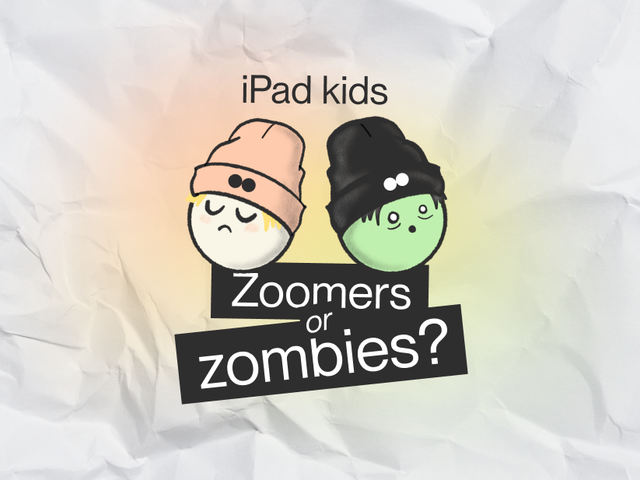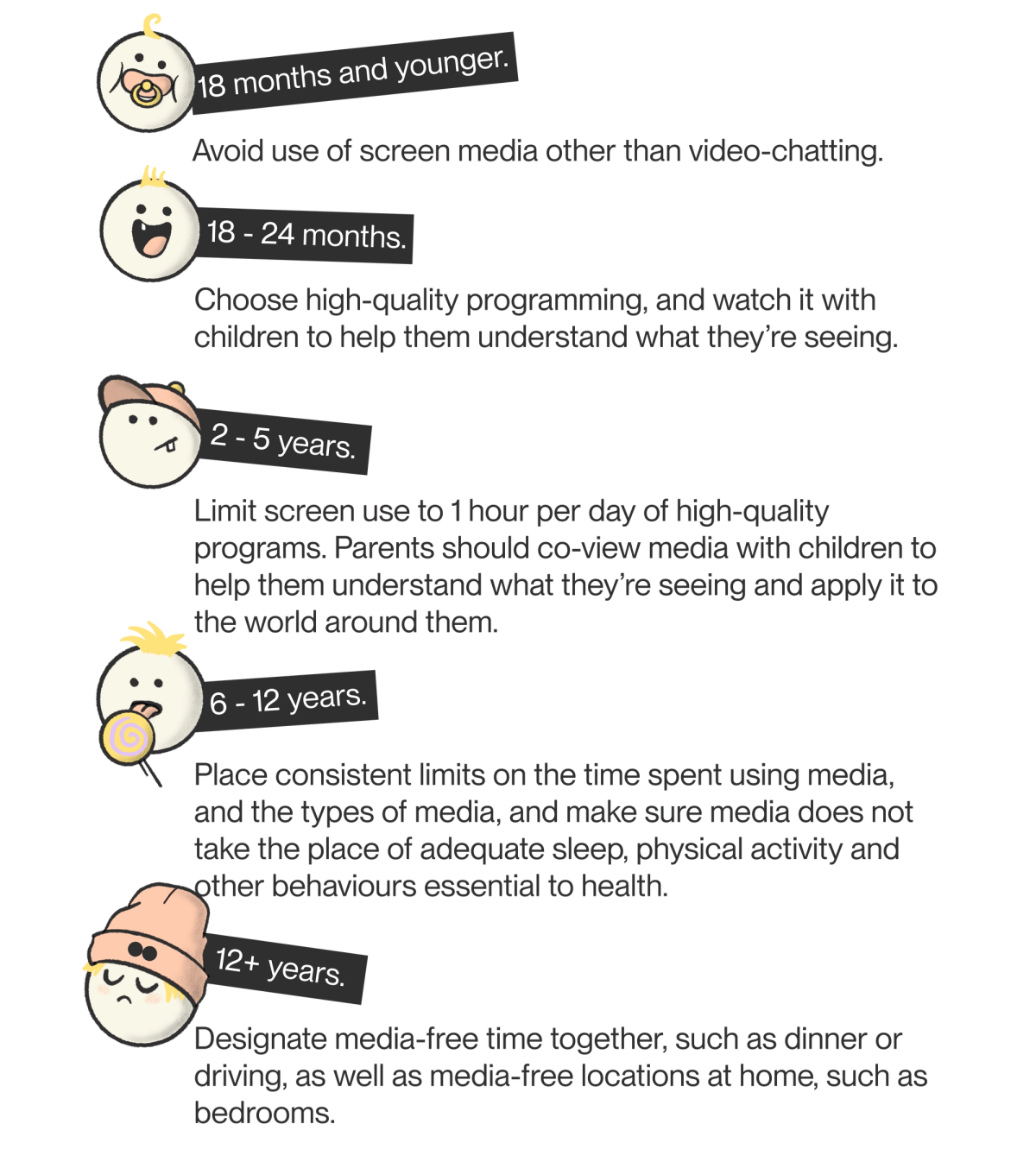
The next generation of kids can be… scary.
And not scary in a Children of the Corn sense. Scary in their adaptability with tech. Scary in their attachment to tech. And scary in their lack of social skills without tech.
Recently, while waiting to be seated at a local restaurant, I noticed a family of four sitting by the entrance. Except, something was off.
They weren’t talking to each other, or even looking at one another. The two kids and their parents all glued themselves to their own tablet devices. The kids even had earbuds connected. When their food came, this continued, with no one saying a word to each other.
Now, I’m not a parent, but for the sake of my future children, this sparked a question. Are tablets and screen time beneficial for kids? Or is it hindering them?
We can hook up later.
If you’re not ready to switch just yet, we get it. Good things take time. Stay in the loop on all things oxio with our seductive emails.
The next Zucks of the family?
Let’s start with the benefits.
The fact of the matter is, for the modern household, technology is a part of our everyday lives. We literally cannot get by without it. I would cease to be making a living if it weren’t for this laptop that I’m writing on, while listening to music on Bluetooth headphones, a Fitbit around my wrist beeping at me to get up and do some steps (brb), and my phone plugged in and charging next to me. Wow, I am a cyborg.
The point is that kids need to be able to adapt to new technology.

Giving young children tablets helps them stay updated with technology.1 Through the use of tablets and different apps, kids get experience in making settings and modifying them as needed. As they enter schools, using devices like tablets and computers will undoubtedly become a part of their everyday lives.
Aside from the editor: Me thinking how I had to learn to colour in the lines before starting school to stay ahead - Now it’s learning tech.
Studies suggest that interactive screen time, like puzzle games, is more beneficial than passive screen time.2
Children playing games with puzzles or other interactive content that require problem-solving can stimulate their brains to grow and learn. This can result in some of the following benefits of screen time:
- Development of fine motor skills - By improving hand-eye coordination.
- Promote school readiness - Through educational games that encourage reading, spelling, math skills, and writing.
- Encourages literacy and communication - With access to emails, messaging apps, and docs.3
Tablets and kids can make for one powerful duo.
In "Raising a Screen-Smart Kid," Julianna Miner discusses how the internet can be good or bad for children. She compares it to a mix of healthy and unhealthy foods, like broccoli and ice cream.4 Of course any parent wants to treat their kids to ice cream, but we should be giving them more of the broccoli, right?

In short, setting limits on screen time via “parental controls” can help kids if they are watching or using quality good content. Quality is more important than quantity when determining screen time for children.
Digital food for digital zombies.
Did you know that around half of kids under 8 spend over two hours a day on screens?5 That’s a whole lot of CocoMelon or whatever else kids watch these days.
Let’s look at some of the negative effects on kids that come about from growing up with iPads or tablets.
A study published in the Journal of the American Medical Association Pediatrics had 1-year-olds exposed to more than four hours of digital media per day.6 Researchers ultimately discovered that extended screen time may delay long-term development.
Aside from the editor: Thanks mad scientists… I hope these kids grow up to be okay.
Not only did they find kids scored lower on language and thinking tests as they grew older, but that there were physiological changes too. Kids who spent more than seven hours a day exposed to screen time had a thinning of the brain’s cortex, which is the area of the brain used for critical thinking and reasoning.
Now, we can’t imagine the average household has kids glued to screens for that amount of screen time, but this does show that extended time on these devices can contribute to delayed development and affects their mental health.
Another result of this study found there was a correlation between extended screen time and deficits in attention.
This isn’t surprising, considering… hold that thought, I need to check something on Instagram.
This isn't surprising, considering researchers estimate the average human attention span to be 8.25 seconds. A whole 4.25 seconds less than before 2015.7
Kids entering their school years with the crutch of an impacted attention span can have lasting effects on their development and ultimately, their futures. Children younger than school age may struggle to develop discipline when exposed to many hours of passive content. This can make it hard for them to overcome challenges or complete simple tasks.
The kids will be alright.
Fortunately, there are resources out there to help with promoting healthy screen use for the youth.
Campaigns like PAUSE8 provide tools for parents. These tools help kids use screens more wisely. They also help balance the negative effects of digital technology.
As we sometimes like to say at oxio, it’s okay to “Disconnect to connect.”
The American Academy of Pediatrics9 also suggests the following screen time use by age:

So, with kids growing up with iPads, digital devices, and increased screen time, are we doomed?
Well, no.
The effects of screentime can be beneficial as long as we provide kids with content that is interactive and has them overcoming challenges. Let’s just hope increased time on passive content doesn’t lead to the next “zombie” apocalypse.
Thanks to the team for their feedback and continued support! Note that no children were forced to play on tablets for the research of this article.



- Why Tablets Can Sometimes Be Good for Your Kids
- Parenting in a digital age: What are the benefits for my child of using technology?
- The Benefits of Screen Time in Play That Parents Need to Know
- Raising a Screen-Smart Kid: Embrace the Good and Avoid the Bad in the Digital Age
- What Does Too Much Screen Time Do to Children’s Brains?
- Screen Time at Age 1 Year and Communication and Problem-Solving Developmental Delay at 2 and 4 Years
- Average Human Attention Span (By Age, Gender & Race)
- Initiatives For Youth
- Screen Time and Children







